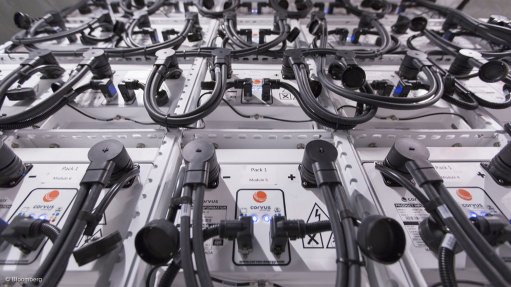
BATTERY EMPOWERMENT In focus at this year’s Investing in African Mining Indaba is the leveraging of precious metals and battery metals to create economic stability and thriving communities
The battery metals market is not expected to show a significant upturn this year, says blasting solutions and explosives manufacturer BME Southern Africa operations GM Albie Visser.
“We do not anticipate a massive increase. However, BME will follow the lead of the electronic vehicle (EV) industry, which will dictate the demand for battery metals,” he says.
Visser expects that small amounts of battery metals will continue to be mined until EV infrastructure has expanded enough to accommodate a widespread influx of EVs into the market.
He says that battery metals had limited influence on BME’s business in 2019, but expects slightly more activity this year.
“Battery minerals are not mined in vast volumes, although smaller mines are being established, such as lithium projects in Namibia, as well as in the Democratic Republic of Congo (DRC), which is a key area of interest for cobalt,” Visser says.
He adds that consistent and fixed offtake agreements are essential to attracting greater investment in battery metals because buying such metals can be sporadic, which can lead to mines being opened and shut down more intermittently.
“Battery minerals are normally found in smaller deposits in remote locations. As such, site establishment with the lowest capital cost is of outmost importance,” Visser comments.
Although significant battery mineral resources have been established in countries such as Zambia or the DRC, Visser says these locations should not be the first to be developed, owing to issues pertaining to ease of access.
“Sources closer to major ports and without long supply lines, such as those in Namibia, should be developed first,” he suggests.
The spread of BME business across all the mining media and commodities has been a “saving grace” when considering the sporadic nature of battery metals mining, owing to market-related challenges, Visser says.
“BME is exposed to multiple metals and mineral resources. This diversification reduces exposure to single mineral price fluctuations. “We need to ensure a diversified portfolio of projects while remaining in line with trends and customer needs,” he explains.
One of the key topics at this year’s Investing in African Mining Indaba is the leveraging of precious metals and battery metals to create economic stability and thriving communities.
The Investment Battlefield at the Indaba will also focus on battery metals mining prospects.
A Blast at Indaba
As a key exhibitor, BME will display its digital initiating technology, which enables companies to tackle the blasting of challenging ores, such as battery metals, safely and with precision.
“The blasting of ores containing battery metals can be challenging, as contamination during blasting can easily occur. These ores are normally low grade and sensitive to recovery percentages, which can have a significant impact on profitability,” Visser says.
Such challenges present an opportunity for BME in terms of specialised on-site high-accuracy blasting. Such blasting can be achieved only by using electronic delay detonators, which BME will exhibit at the Mining Indaba.
The key objective of BME’s exhibition is to network with existing and potential customers.
However, BME aims to showcase some of its newest technological advances, such as the company’s AXXIS Titanium digital initiation system, which boasts enhanced safety features.
Visser encourages visitors and delegates to discuss the company’s products and services face to face with BME representatives at the event.
BME AXXIS product development head Tinus Brits will engage with visitors at the company’s stand at the Mining Indaba.